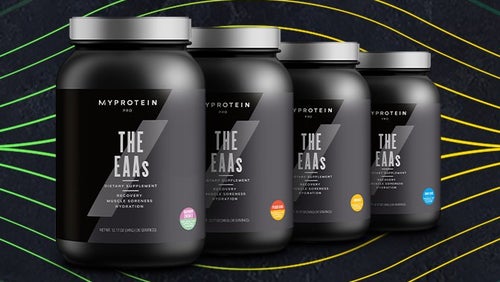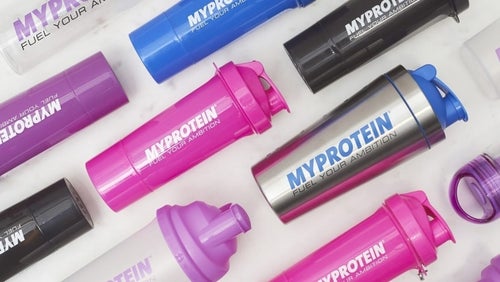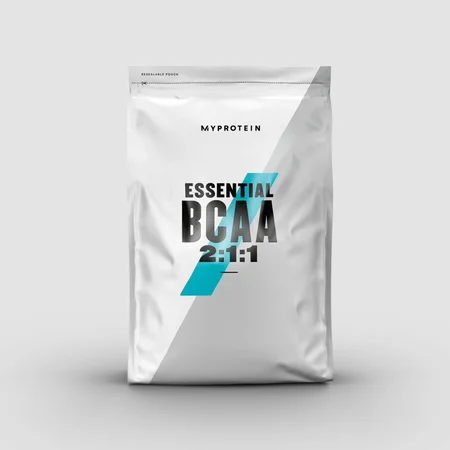
Glutamine is produced by the body and available in everyday foods, but is also a popular supplement due to its variety of potential health and performance benefits.
Glutamine exists in two different forms, L-glutamine and D-glutamine, which only vary in molecular structure. In this article, we will focus on the specific health benefits and side effects of L-glutamine.
What is Glutamine?
Glutamine, specifically L-Glutamine, is an amino acid (a building block of protein). Amino acids and proteins play many vital roles in our body. Specifically, glutamine helps with the transport of carbon and nitrogen (used for cell division and growth) in our bodies and plays roles in neural function, intestinal function, and boosting our immune system.
It is made by the body in our muscle tissue and is therefore considered “non-essential”. This means that we don’t have to strictly consume it from our diet. However, when our body is under physical (metabolic) stress, it may require more glutamine than it makes on its own.
This need for additional glutamine, when our body is using it in higher amounts, supports the argument that L-glutamine is actually “conditionally essential” – meaning there are times when it’s necessary to consume more than what our body produces.
It makes sense that making our muscles work hard would demand more L-glutamine – since they’re responsible for creating it in the body. Instances during which our body comes under stress, makes it require additional glutamine.

Food Sources
Dietary sources of L-glutamine include a variety of foods, from animal foods like eggs and beef to vegetable sources like rice or corn. Due to this wide availability in food, following a healthy diet can provide adequate L-glutamine for most people. However, during exercise, L-glutamine production changes based on the type and intensity of activity.
Because L-glutamine is crucial for muscle building, increasing our levels via supplementation after exercise can be beneficial. L-glutamine supplementation may have a greater benefit on those who have less protein in their diets, like vegans or vegetarians. This is because they may naturally have less of this amino acid.
Many sports supplements are targeted towards strength training, but L-glutamine has potential benefits for both power exercise and endurance exercise.

Benefits
Quick Recovery
Research has shown that athletes can benefit from L-glutamine supplementation to decrease muscle soreness and faster recovery time.
This amino acid plays a crucial role in controlling glucose (energy) uptake by the muscles after exercise, which can help restore their energy stores for your next workout. When your muscles have optimal glucose stores, you can perform better and take longer to fatigue.
Long periods of strenuous training have been shown to decrease blood glutamine levels, making it a potentially useful supplement for your post-workout nutrition plan.
Increased Lean Body Mass and Power
When combined with creatine, L-glutamine supplementation has been shown to increase lean body mass and power with endurance exercise.
Studies have shown additional potential benefits, such as:
- Limited strength loss and reduced muscle soreness
- Feeling less fatigued
- Longer time until exhaustion in endurance exercise
Boost in Immunity
Additionally, athletes who follow intense training schedules tend to have weakened immune systems due to the constant physical stress of high-intensity exercise.
Dosage
Intakes of 20-30g of glutamine or 0.65g/kg of body mass have been used in research studies and not shown any ill effects in short term use. However, you likely only need 3-5g daily to meet your body’s needs.
Myprotein offers several glutamine options - follow the packaging dosage to use 1-2 scoops per day.
Timing
Because glutamine has shown to be in lower concentrations after intense training sessions, it’s popular to take it after a workout to help your muscles to rebuild and grow - but it’s not the only time of day to use it.
It can be taken on its own or as part of your post-workout protein shake since protein is another key for muscle recovery and building. Glutamine’s role in controlling glucose (energy) usage during workouts means it can also be useful to take it before a workout.
For these reasons, the timing is primarily based on your goals - if you struggle with energy and pushing through to finish your workout, add it to your pre-workout shake or meal.
Potential Side Effects
L-glutamine is partially metabolized to ammonia, which can increase blood ammonia and blood glutamate levels in high doses.
Studied doses of glutamine ranged from 5-28 grams per day, with a published observed safe level of a maximum of 14 grams per day, and no increase in plasma ammonia levels.
There are limited potential sides effects of taking L-glutamine every day, as it’s both made by the body and present in many foods.
FAQs
What are the benefits of L-Glutamine?
The benefits of L-Glutamine include faster recovery and between workouts, increased lean body mass and power, and a boost to your immune system.
What is L-Glutamine?
L-Glutamine is a non-essential amino acid, meaning your body produces it naturally. However, when your body is under metabolic stress, supplementing it may be beneficial.
When should I take L-Glutamine?
The best time to take L-Glutamine is pre- and post-workout, in order to replenish stores which are depleted as you train.
Take Home Message
L-glutamine is an important amino acid that plays many roles in our bodies regardless of our level of exercise. However, the stress that exercise puts on our body can deplete our L-glutamine levels, making it a useful supplement for athletes.
Looking for some more expert advice?
READ THESE NEXT:

BCAA And Glutamine | Which Is Best?

Everything You Should Know About EAAs – Are They Superior to BCAAs?
Here, we see how BCAAs stack up to EAAs....

BCAA Benefits | All You Need To Know

Claire is a Registered Dietitian through the Academy of Nutrition and Dietetics and a board-certified Health and Wellness Coach through the International Consortium for Health and Wellness Coaching. She has a Bachelor of Science in Biology and a Master’s degree in Clinical Dietetics and Nutrition from the University of Pittsburgh.
Talking and writing about food and fitness is at the heart of Claire’s ethos as she loves to use her experience to help others meet their health and wellness goals.
Claire is also a certified indoor cycling instructor and loves the mental and physical boost she gets from regular runs and yoga classes. When she’s not keeping fit herself, she’s cheering on her hometown’s sports teams in Pittsburgh, or cooking for her family in the kitchen.
Find out more about Claire’s experience here.
- Gleeson, M. (2008). Dosing and efficacy of glutamine supplementation in human exercise and sport training. The Journal of nutrition, 138(10), 2045S-2049S.
- Operation Supplement Safety. (2019). Uniformed Sciences University Consortium for Health and Military Performance. Glutamine.
- Hall, J. C., Heel, K., & McCauley, R. (1996). Glutamine. British Journal of Surgery, 83(3), 305-312.
- United States Department of Agriculture Agricultural Research Service. (2019, January 29). USDA Food Composition Databases Nutrient List. Retrieved from https://ndb.nal.usda.gov/
- Legault, Z., Bagnall, N., & Kimmerly, D. S. (2015). The influence of oral L-glutamine supplementation on muscle strength recovery and soreness following unilateral knee extension eccentric exercise. International journal of sport nutrition and exercise metabolism, 25(5), 417-426.
- Iwashita, S., Williams, P., Jabbour, K., Ueda, T., Kobayashi, H., Baier, S., & Flakoll, P. J. (2005). The impact of glutamine supplementation on glucose homeostasis during and after exercise. Journal of applied physiology.
- Lehmkuhl, M., Malone, M., Justice, B., Trone, G., Pistilli, E. D., Vinci, D., … & Haff, G. G. (2003). The effects of 8 weeks of creatine monohydrate and glutamine supplementation on body composition and performance measures. The Journal of Strength & Conditioning Research, 17(3), 425-438.
- Street, B., Byrne, C., & Eston, R. (2011). Glutamine supplementation in recovery from eccentric exercise attenuates strength loss and muscle soreness. Journal of Exercise Science & Fitness, 9(2), 116-122.
- McCormack, W. P., Hoffman, J. R., Pruna, G. J., Jajtner, A. R., Townsend, J. R., Stout, J. R., … & Fukuda, D. H. (2015). Effects of L-alanyl-L-glutamine ingestion on one-hour run performance. Journal of the American College of Nutrition, 34(6), 488-496.
- Melis, G. C., ter Wengel, N., Boelens, P. G., & van Leeuwen, P. A. (2004). Glutamine: recent developments in research on the clinical significance of glutamine. Current Opinion in Clinical Nutrition & Metabolic Care, 7(1), 59-70.
- Shao, A., & Hathcock, J. N. (2008). Risk assessment for the amino acids taurine, L-glutamine and L-arginine. Regulatory toxicology and pharmacology, 50(3), 376-399.
ndb/nutrients/index









